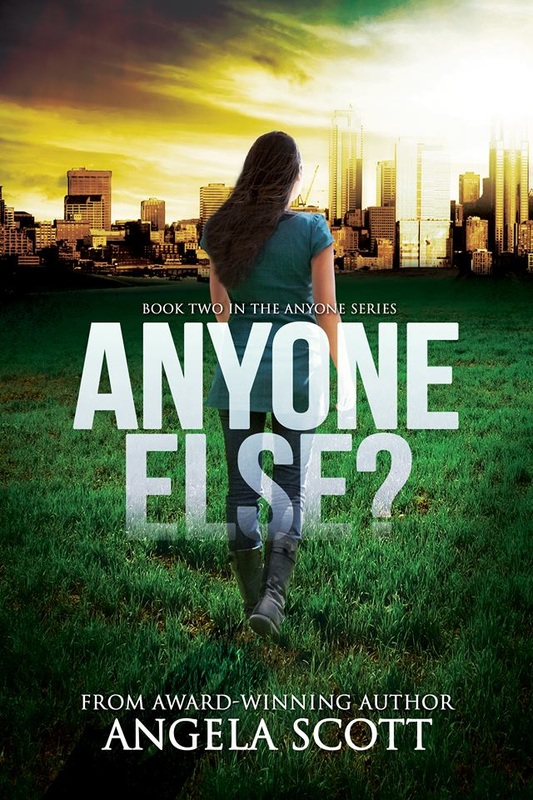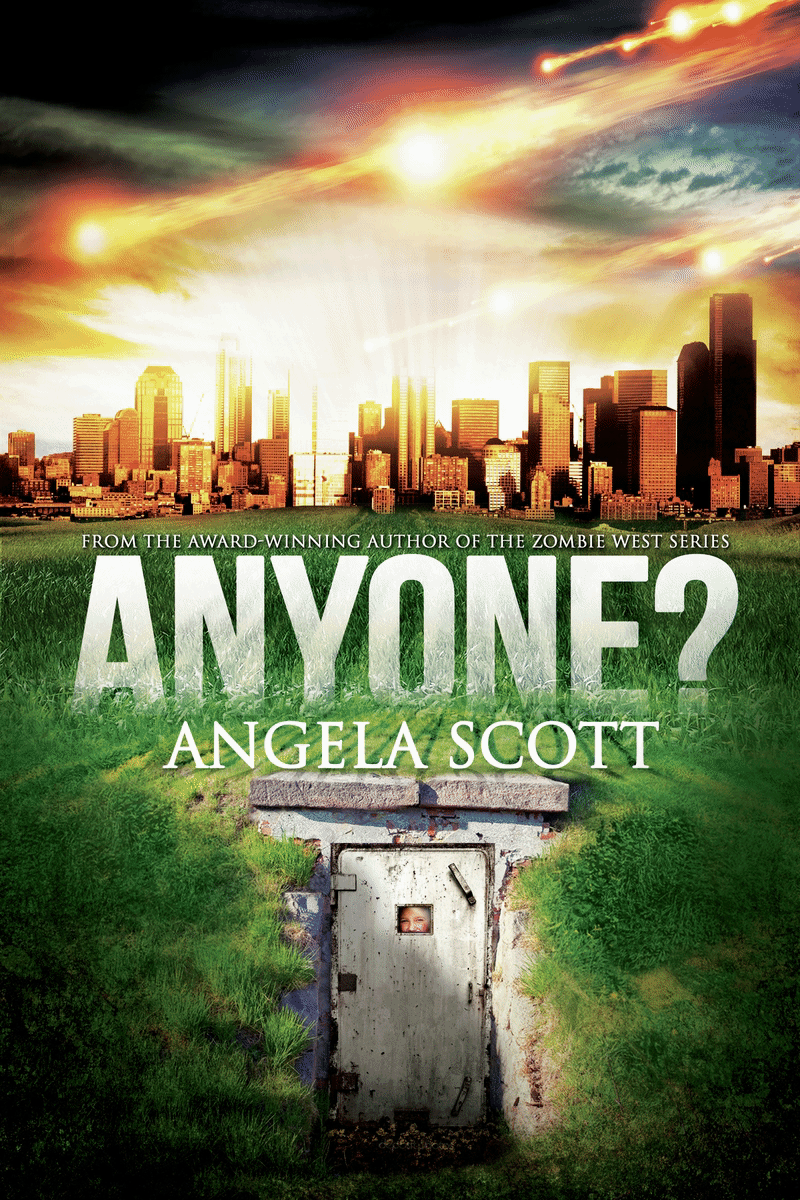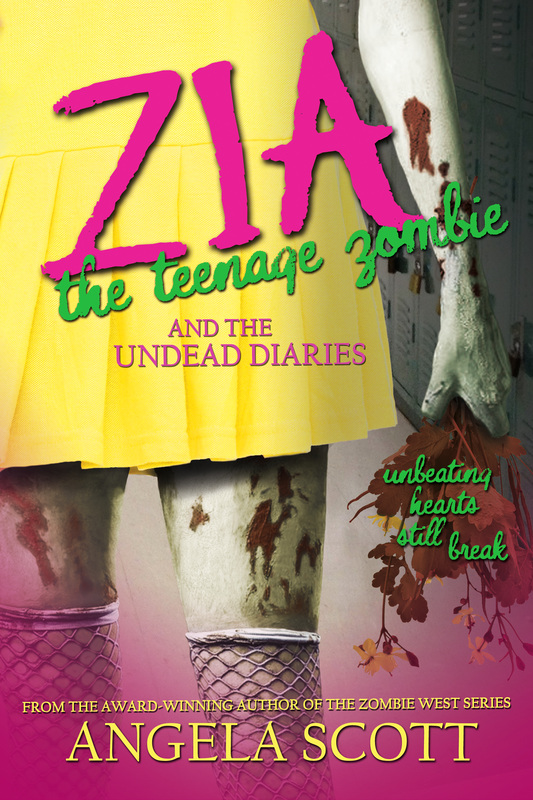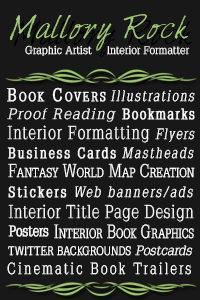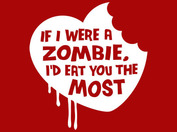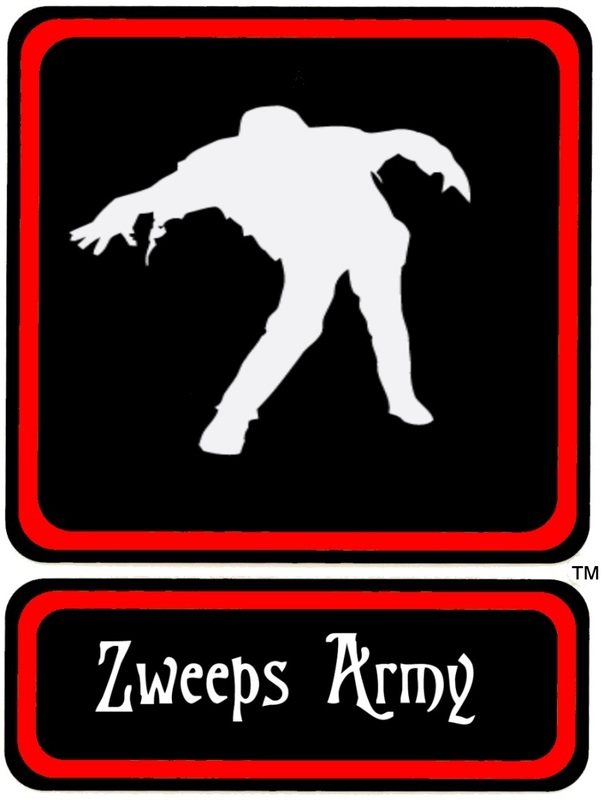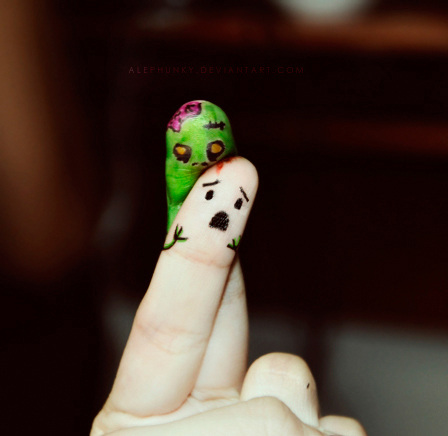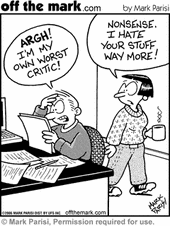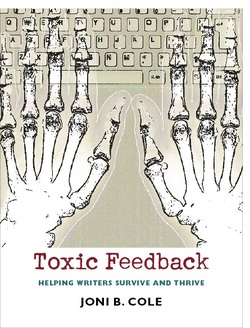 I remember being a young girl, perched on a stool in the middle of my kitchen, singing along with the radio, belting out the words of the song with such passion and emotion as my mother cut my hair (she was a hairdresser back in the day and so our haircuts came free—lucky us). I was feeling the music all the way down to my soul. I was a singer! I could sing just as well as Crystal Gale, or so my thirteen-year-old self believed. I knew I was that good. Then my mother, the woman I so admired, so loved, told me, “Angela, I’m so glad you took up an instrument instead of joining the school choir.” What?! What the heck did she mean by that? Was my own mother telling me I sucked at singing? Really? I truly believed so. At least that’s the way I took it. And to this day, I remember that scenario clearly (my mother denies saying any such thing or that the situation even happened at all) and because of it, I have a singing complex. I still love to sing, but I don’t do it nearly as loud, nor do I sing in public places—I whisper-sing when anyone is around. I’m super self-conscious. The feedback I received from my own mother had a lasting impact on me that even twenty plus years later, I still feel it. As much as writers crave feedback—good feedback, constructive feedback—every writer at some point will receive some toxic feedback that will make them want to cry, take a hammer to their laptop, and swear they’ll never, EVER write again. No matter what. You can’t make me. And to make matters worse, that feedback was usually given by someone we admired greatly and so wanted to impress. To find out we didn’t impress them one bit can be pretty damaging and heartbreaking to our fragile writer’s ego (yes, we’re fragile, we are. We want to be tough, but it still stings—we’re human after all). Putting ourselves out there by handing over our writing, something we’ve put our heart and soul into can be scary. Then to be told it just wasn’t good enough can really affect how we continue to look at ourselves and our writing paths. Each writer is different and each writer will take that piece of feedback and react to it differently as well. For some, it will be the end all to end all. And for others, they will use it to better themselves in an act to prove that particular feedback provider wrong. Recently, I read a book titled, Toxic Feedback, Helping Writers Survive and Thrive by Joni B. Cole, in which she discusses this very thing. If you have read Bird by Bird by Anne Lamont, then you will enjoy Joni B. Cole’s writing style and approach—very personable and humorous. Because I like to use little post-it notes to mark passages or areas of a book I find useful , my copy of this book now looks like a freaking rainbow, there was so much I found valuable and worth marking. At some point in your writing career, someone is going to make you feel like crap. It will happen. It will. Whether it’s early in your writing—be it a teacher, professor, even your own mother, or heaven forbid, your spouse—or later, after you’ve been cultivating your writing for years—rejections from agents, publishers, or you receive a horrible review from a reader who gives you one stinkin’ star out of five—it will happen. But in her book, Toxic Feedback, Joni goes on about how we should process that information, how to approach it. And more importantly, I feel, she discusses how WE should go about giving feedback to others who ask it from us. Because like it or not, receiving feedback and giving feedback can be a highly emotional thing if not done correctly. It could actually be more damaging than good. I love Joni’s definition of feedback, or what she believes the definition should be: “Any response to a writer or his work that helps him write more, write better, and be happier.” Wow. Isn’t that great? That’s the kind of feedback I want. Don’t you? And that’s the kind of feedback we should be giving, as well. Now, don’t confuse this with being all fake and saying positive stuff about someone’s writing that is seriously lacking and needs a ton of work—that’s not what I’m saying here or Joni either. That defeats the “write better” portion of the definition above. It’s all about the approach. We need to be conscious of how we approach a person’s work, how we encourage them to fix those areas—spelling, character development, plot issues—without making them feel like a loser. Joni gives some great pointers in her book about how to do it correctly. We also need to look at ourselves and understand how we process and react to negative feedback as well—we need to understand the intentions. The cold hard truth is that we all need feedback. We do. Without it, we risk setting ourselves up for failure and humiliation. For me, I know I’d much rather have one of my critique buddies tell me I have a piece of broccoli in my teeth (embarrassing and slightly humiliating) than to be standing in front of the world, smiling like an idiot, with broccoli in my teeth, making people uncomfortable or worse yet, causing them to gag. If you haven’t added Toxic Feedback to your writer’s library, I highly suggest you check it out. Just as important as it is to know where to place a comma, or what things to avoid in writing your first five pages, I think knowing how to give and process feedback ranks right up there with things all writers should know and be aware of. The sooner we can come to understand negative feedback and how to utilize it to make us better writers, the sooner we will improve not only our writing but other writers writing as well. And don’t we all want that? Of course we do. I'm feeling pretty generous right now, so I'm thinking to give away my copy of Toxic Feedback--covered in post-it notes. All you have to do is leave a comment below and let me know how you deal with negative feedback and your name goes in the drawing. How easy is that? (It's a GREAT book. You'll want to get your hands on this one).
18 Comments
10/17/2011 12:57:57 pm
Wow, Angela, my post on the ROW80 blog today details what I did with toxic feedback, which was to hide my writing for twenty years. Not the best response!
Reply
10/17/2011 03:18:14 pm
Um, make that "I've learned to lessen the sting." Darn phone! :)
Reply
10/17/2011 08:12:15 pm
I enjoy getting constructive feedback instead of the "it's great" type of feedback. Feedback from other writers who look at my work with a critical eye, those that want to make it better, and who see the work from their own perspective are very helpful.
Reply
I was a TV Reporter/Presenter for many years. Someone wrote in to say I had 'drug-crazed eyes'! How's that for toxic - and particularly galling given that I rarely take so much as an aspirin.
Reply
10/17/2011 08:42:12 pm
What a great post this is -- and timely. as I was only recently hit over the head in an assault of enormous proportions. Yes, feedback happens, and in most instances we welcome and learn from it. It's the toxic stuff that's so difficult to swallow. For me it helps to get angry. Not the "lock-and-load, clear-the-area" variety of anger. But the quietly simmering type that keeps me determined to keep at it and prove the assailant wrong.
Reply
10/17/2011 09:17:42 pm
I remind myself of the adage "Whoever you are, a third will love you, a third will hate you, and a third won't care. So just be yourself because you can't please everyone.". That works most of the time. For the really toxic stuff I tell myself that it was written by a Troll just to get a reaction out of me and ignore it publicly.
Reply
10/17/2011 11:06:54 pm
Great post. I think it's also important to ask for criticism, and also to process it. I got some negative comments on a WIP, but I took from it what I could , to correct the problems. Other comments showed that the critic was dealing with some preconceptions more than with the work itself. You have to learn to sift through all the comments, take what you can use to grow from and discard the rest.
Reply
I am a really horrible singer, but I do Storytime at my library, so I end up singing in front of people far more than I like. The kids like it *shrug*
Reply
10/17/2011 11:38:41 pm
Omg, I recall telling my 9 year old something like that back when she was in 4th grade (she's graduated now). But, I said, as she belted out the Star Spangled Banner, "Oh, honey, sweetheart, you've got to find what you excel at, like horsemanship, and run with it." She was trying out in front of the entire school that afternoon! I gave her a few pointers, and let her know I wanted to be a singer at one time too, a rock star none the less! We worked on a few high notes and I drove her to school. I'd hate to think I damaged the girl!
Reply
10/18/2011 12:57:30 am
First response: go to my corner until the stinging stops. Second response: remind myself that the Universe remains in balance. I acknowledge the pain and try to explore its effect on me. Weighing out the "are they right" takes a while. Lunch with friends follows, where we laugh merrily over our wounds. When I'm calm, I discuss the toxic commentary with my kids hoping maybe they'll have a stronger base from which to deal with it in the future.
Reply
That sounds like something everyone especially reviewers should read. I admit sometimes I get really angry when I read a book and I feel like I've wasted my time. Though I like to think I never write flaming reviews but I definitely let my aggravation be known.
Reply
Err...I have gotten some negative feedback before.But usually I take it in this order:
Reply
10/18/2011 12:35:34 pm
Two things I love about this, 1) I absolutely agree, feedback is GOOD:http://skybluemission.com/2011/09/22/taking-feedback/ :)
Reply
Lisa Rosenman
10/24/2011 09:23:44 am
Ah, feedback. When I first started writing, I couldn't handle anything that wasn't positive. I'd cry & hide in my car after writing group, or even worse, have to excuse myself to cry in the bathroom!
Reply
11/3/2011 01:38:33 pm
I love this. Definitely need to check that book out.
Reply
11/17/2011 12:15:32 pm
Toxic? Me? Never!
Reply
Leave a Reply. |
Now Available!
|
